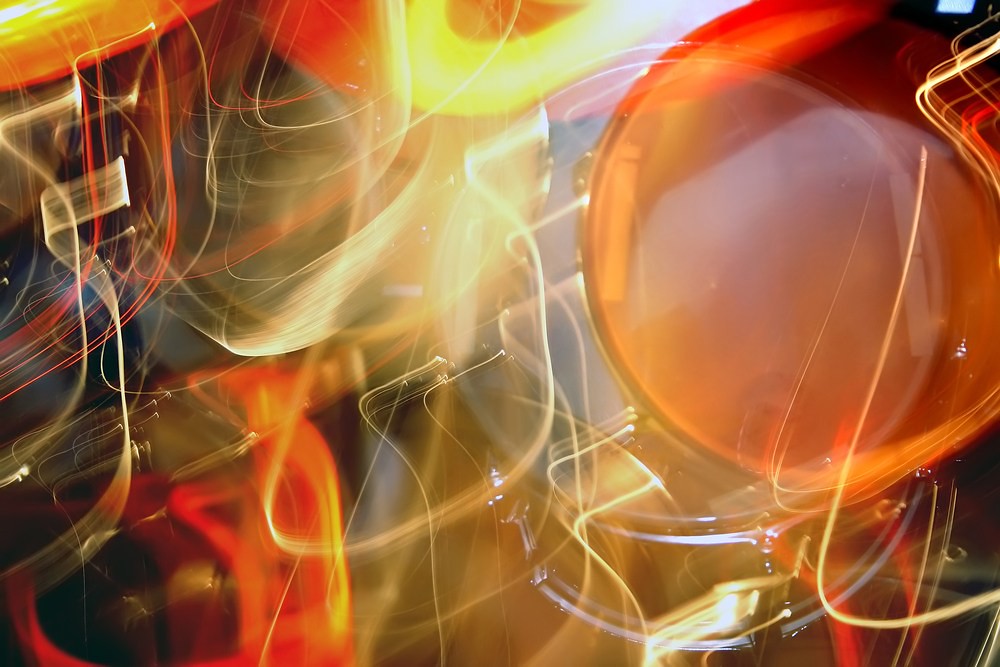
–W.S. Merwin, poet
Suppose that you’re about to practice, compose, or improvise: Do you aim to restate past ideas or come up with fresh ones?
Assuming that deliberate self-copying makes you cringe, then, to be creative, you’re going to have to step beyond your known universe and toward an indefinite future.
The Uncertainty of the Creative Process
Maybe your ideas will soar; maybe they’ll sputter. How can you know where your intuition will lead?
You can’t.
And that’s one reason why so many people don’t create: The uncertainty of the process makes them so uncomfortable that they flee toward the familiar.
Musicians who dread risk, for instance, will devise ordinary concert programs, play shopworn licks, shy away from entrepreneurial projects, and otherwise languish.
Creative artists, by comparison, love venturing outside of their comfort zones.
They know that their greatest discoveries will be found in uncharted waters, and they fearlessly set off in search of adventures.
5 Ways to Embrace Uncertainty
Here are 5 strategies that help us embrace the mysteries of the creative process and become fearless creators.
1. Refine Goals
Our big and small goals interact either to fire our enthusiasm or douse our potential.
Authentic long-term aims and specific daily objectives spur us to work.
In contrast, vague aspirations – such as to “get better” – can leave us unsure of what to practice.
2. Trust
As W.S. Merwin states, our accumulated knowledge matters. Still, our know-how isn’t our art; rather, it constitutes the tools we use to create art.
To innovate, then, we have to trust our abilities, dive into tasks, and let go of worry about how things will turn out. We can’t know where our creativity will take us, but by believing in ourselves, we can be certain we’ll arrive somewhere meaningful.
For example, a trusting songwriter will start composing a new piece, confident that the act of beginning will stir up ample material that she can craft into a song.
“We can’t know where our creativity will take us, but by believing in ourselves, we can be certain we’ll arrive somewhere meaningful.”
3. Generate Numerous Ideas
If we want to scuttle our creativity, we should tell ourselves to come up with brilliant ideas exclusively. Then, our wellspring of ingenuity will be blocked by an inner critic.
Conversely, to tap reservoirs of imagination, we do well to churn out unfiltered streams of ideas without being critical.
4. Experiment & Evaluate Playfully
With a cache of ideas in hand, our next step is to adopt a playful approach to separating out the valuable nuggets from the raw material.
In the practice room, let’s say, we might record some passages, listen back, make revisions, record again, and so forth, taking pleasure in the process.
5. Persevere
Some days we’ll enjoy cascades of ideas and floods of accomplishment; other days we could be snarled in difficulties.
Nonetheless, creative achievement is typically built on piles of discards.
So let’s bring a tenacious, resilient attitude to our work because perseverance and mental toughness are as vital to the creative process as are artistry and technique.
“Perseverance and mental toughness are as vital to the creative process as are artistry and technique.”
* * *
*The W.S. Merwin quotation is paraphrased from a statement I heard him make during his residency at the UNC School of the Arts, April 21-23, 2008.
Related posts
Artistic vision
The growth mindset
Mastery and mystery
Positivity
Self-evaluation: The key to artful practice
© 2010 Gerald Klickstein
Photo licensed from Shutterstock


I love this! This is just what I have been thinking and feeling; all those years of listening and playing; and a sense of ease and ability to deal with what is there. And to push it and tease it as it will go.
Excellent suggestion regarding the success journal, Astrid. Thanks for contributing.
Great comment! As someone who coaches musicians on how to create authentically successful careers, your message is very helpful, especially the part about trust. Often, creative people fear that they will never again muster up their creative process to produce something worthwhile. I encourage my clients to keep a success journal documenting their creative successes and what enabled them to be successful. Then, whenever they doubt their abilities, they have an “objective” chronicle of all the things that they did in the past to achieve success. By remembering these past successes and what helped to be successful, my clients are often able to get out of doubt and into a place of trust.